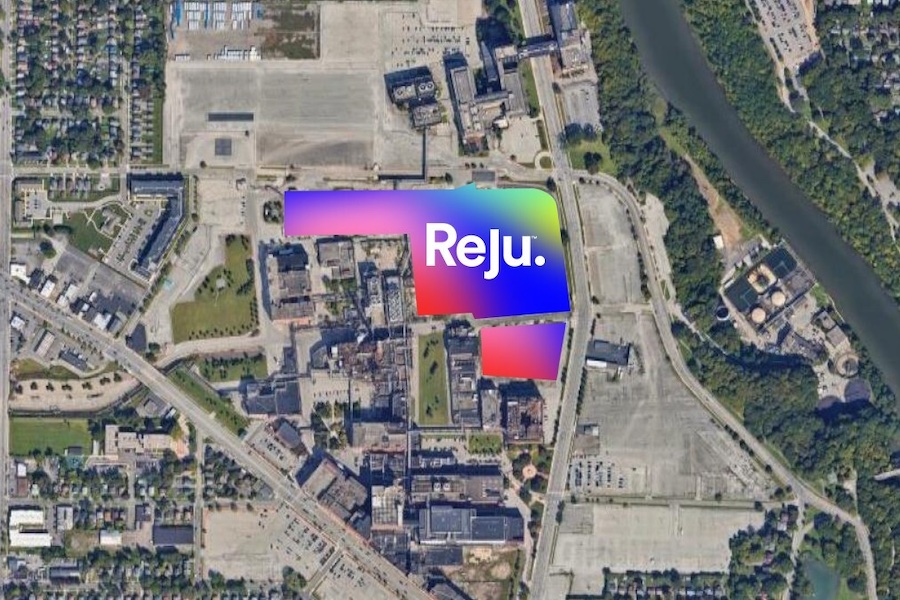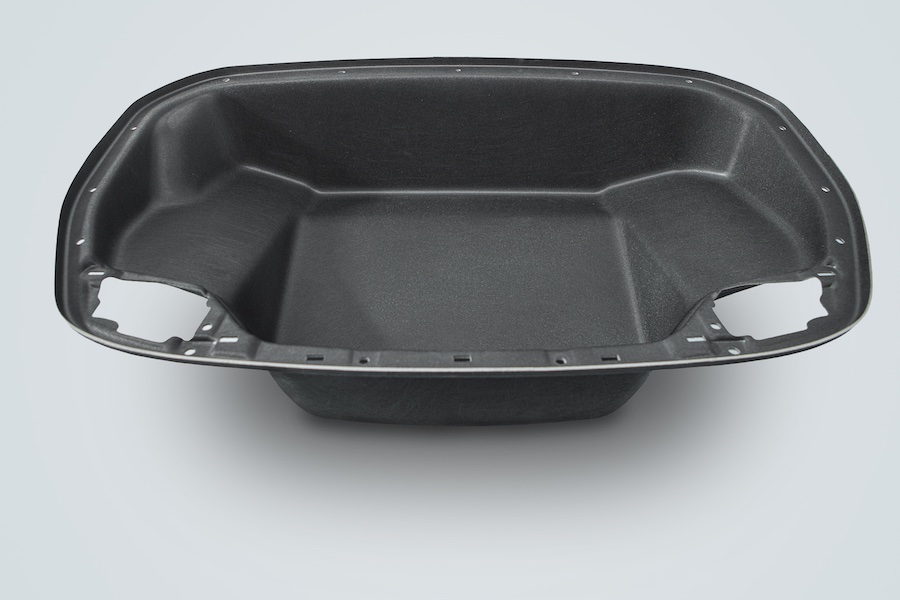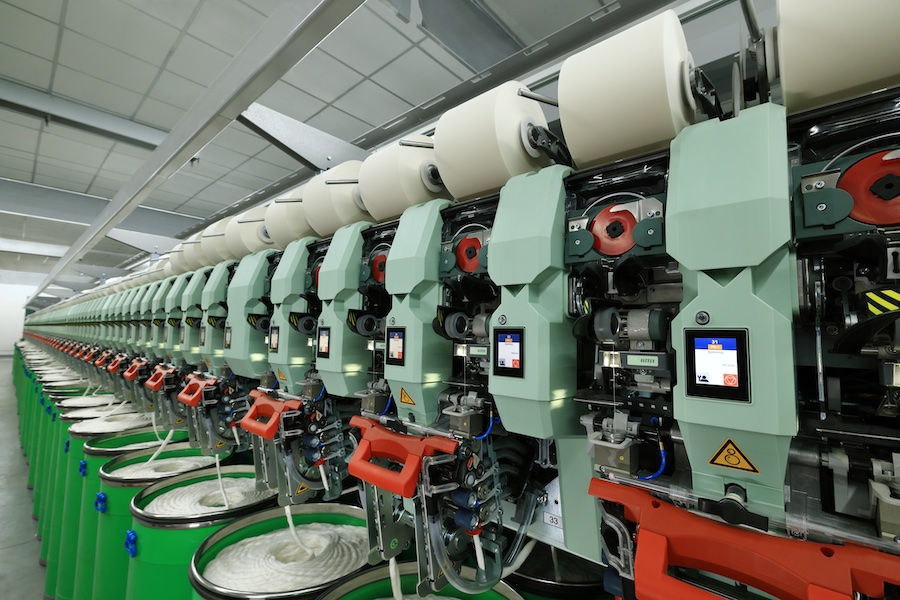#Recycling / Circular Economy
Libolon brings Taiwan’s functional textiles to next level with circular economy mindset
With a solid commitment to sustainable principles, Libolon produces recycled polyester material derived from post-consumer wastes such as plastic bottles and marine litter into mechanical recycled PET or pre-consumer wastes such as fabric wastes as well as discarded polyester fabric.
Libolon has an extensive collection of recycled polyester products in multiple categories for woven and knit fabric that adhere to the international textile standards, according to Steven Su (???), assistant vice president at Libolon.
Libolon has an extensive collection of recycled polyester products in multiple categories for woven and knit fabric that adhere to the international textile standards, according to Steven Su (???), assistant vice president at Libolon.
As one of the leaders in the Taiwan textile industry, Libolon has invested in recycled materials for more than 20 years, developing recycled polyester yarn (RePET) and recycled solution-dyed yarn (ReEcoya) made from plastic waste into eco-friendly products.
This direction has been instructed by the company’s chairman, along with the dedication of the company’s textile engineers, designers and partnerships with leading-edge customers.
Most of the world’s largest sports brands, including Patagonia, Adidas, Arc’teryx, Nike, Decathlon, and Everest, have valued the reuse of existing materials, which they see as viable alternative products other than fossil fuels materials.
Global brands aim to deliver strong ESG (Environmental, Social and Governance) performance, motivating Taiwan manufacturers like Libolon to become the primary source for textiles and development initiatives.
Experts believe Taiwan will successfully unlock various economic opportunities in different industries while transforming into a circular system.
The new model of production and consumption is part of Taiwan’s President Tsai Ing-wen’s “Five Plus Two Industry Innovation Plan” about the development of “Five Pillar Industries” — the Internet of Things, biotech, green energy, smart machinery, and defense — in which “Plus Two” refers to the high-value agriculture and circular economy.
Following this concept and eco-friendly products creation principle, Libolon has developed the “Closed Loop Recycling Zero Waste System” (???CRZ????).
The process involves the conversion of old fabrics from garments and shoes, remnant fabrics and unpacked material into crushed components through a unique “multicomplex purification process” to create chips/pellets and yarn.
Maggie Hung (???), manager at the prime textile business division, explained that “Libolon Recycling Technology utilizes recycled yarn and recycled leftover fabric materials to create various fabrics and apparel.”
The technology can turn waste material into reusable yarn, starting from the recycled chips of RePET (PCB), PolyPlus and NylonPlus (recycled nylon), in line with the circular economy mindset for environmentally friendly products.
Once finished, the products enter the market, creating a loop matching Libolon’s goal of “Endless Regeneration,” stressed Hung.
This loop system will certainly reintroduce both products and wastes into a new industrial circuit and offer many benefits for businesses, the environment, and society.
Water-Saving Processes and International Certifications
Taiwan manufacturing companies believe that wastewater management could further bring the process described above to the next level if adopted on a large scale.
Although water plays an essential role in the dyeing process, many textile companies are still reluctant to accept this conversion.
With this observation in mind, Libolon created Ecoya in 2000 – the first solution-dyed yarn. Ecoya doesn’t need a dyeing process after being woven, which is a remarkable way to save energy usage and cut down 70% to 82% of the wastewater emissions discharge.
Moreover, Libolon can combine recycled material with Ecoya, the ReEcoya (recycled solution-dyed yarn). According to Su, ReEcoya offers a rich color palette and an array of patterns to create the desired effects.
In addition to a clean and fashionable fabric appearance, the fabric is highly abrasion-resistant, UV-resistant, and waterproof, making it suitable for luggage bags, backpacks, sportswear, and more.
More importantly, Libolon complies with Oeko-Tex Standard 100 – a globally standardized inspection and certification system targeting all textile raw materials, semi-finished and finished products.
Oeko-Tex Standard 100 demonstrates that the fabric is unharmful and has followed the product’s safety benchmark.
Moreover, the company has obtained the Bluesign standard, ensuring that the entire production process complies with consumer safety and staff health requirements.
At the same time, Bluesign provides directions on effectively managing energy conservation and waste reduction to reduce the potential waste of resources and capital.
A Peaceful Co-Existence Between the Environment and Libolon
The new standard for wastewater discharge in the textile printing and dyeing industry limits the amount of freshwater for every ton of fabric produced and helps the textile companies like Libolon.
Libolon’s Li Peng dyeing factory in Yangmei recycles and reprocesses the wastewater released from the dyeing process for farming to a peaceful co-existence between the environment and the enterprise.
This action could reduce the volume of water used during the dyeing process - by 20 to 40 metric tons of water on a ton of fabric, reducing waste and energy consumption simultaneously.
https://www.textiles.org.tw/TTF/english/news/News.aspx?kind=6&menu_id=240&news_id=13684














